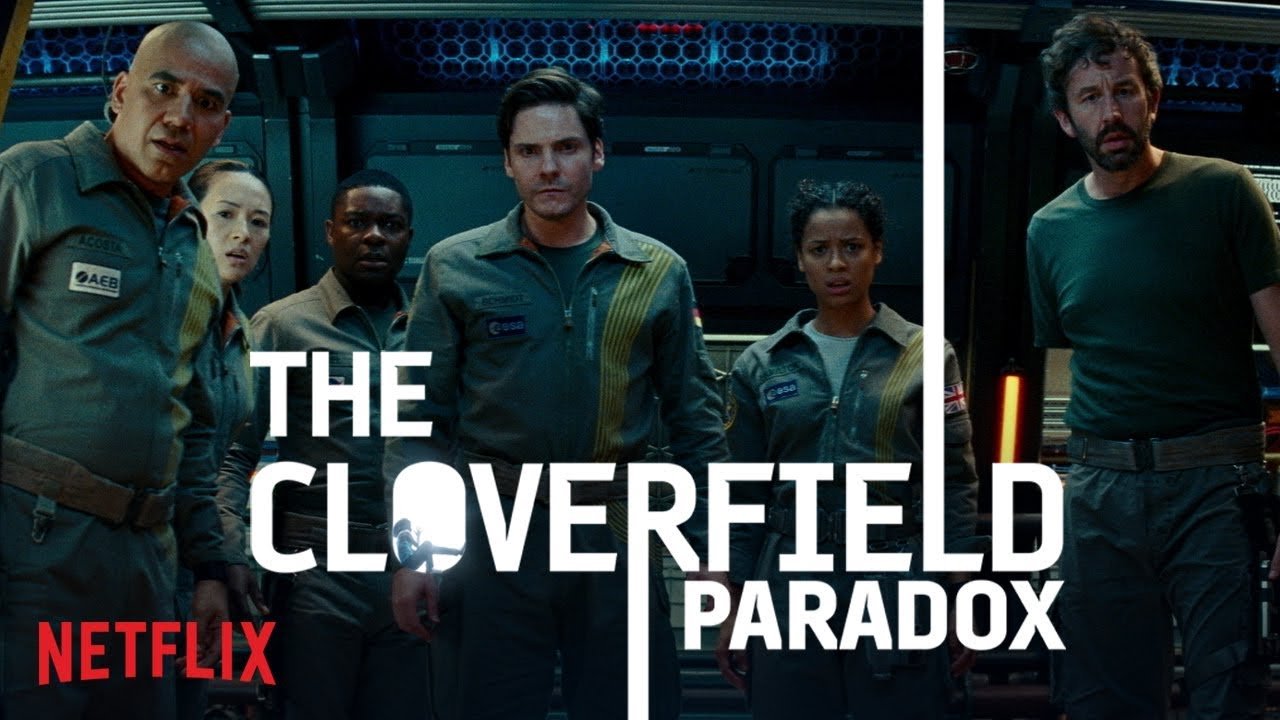
As if for me, who has only recently grown increasingly fond of netflixing, the latest installment in the Cloverfield franchise decided to pop up on the streaming platform, unlike the first two films, which showed in theaters. A Super Bowl commercial heralded the surprise release announcement just days before the streams began rolling out the film. After rewatching the first two films — yes, on Netflix — I went straight on to the recent one, The Cloverfield Paradox, and here is my take on it: a whirlpool of motifs and material that no longer appear entertaining or thought-provoking to moviegoers. Spoilers ahead.
I won’t lie. I watch a lot of movies. Does that make me a qualified critic? No, and I do not claim so. However, it does help in giving me a sense of what the general moviegoing population might have been through. Gravity, Interstellar, and The Martian clearly share the outer space as their material whereas 2001: A Space Odyssey, Planet of the Apes, and Life commonly portray the fear of the unknown beings, possibly sturdier and/or more intelligent than humans are. I could even — albeit loosely — lasso together 28 Weeks Later, Blindness, and It Comes at Night for their depiction of human instinct in extremely resource-scarce settings.
With all these motifs, materials, and themes dispersed rather densely over the possible distribution of movies, it does seem to take superhuman talent to tread a never-before-trod path along the dimensions of creativity. That is why I in no way mean to condemn the filmmakers of The Cloverfield Paradox on grounds of originality. However, the said film appears little better than an ill-brewed mishmash of familiar ideas and concepts that probably would have awed moviegoers back in the time when Netflix wasn’t even a thing.
I am not just talking about some of the constituent characteristics of the movie: dimensional travel, struggle in space, extraterrestrial attacks, thinning international relations, imminent war, human greed, familial love, and so on. The familiarity of these features alone should not merit a harsh criticism on the film’s part, and I stand by it. However, I believe that a well-told story excels not in what is told but in how it is told. Going back to the film in question, if it was so compellingly inevitable to employ previously encountered plot devices and thematic roles, a little twist here and there would have been very much appreciated.
Take the character Schmidt for example. He is a German engineer onboard the cutting-edge technology spaceship that supposedly generates adequate energy for the resource-hungry Earth for an indefinite amount of time if the operation is performed successfully. In what I believe is the illustration of a miniaturized epitome of Earth’s international conflict on the spaceship, Schmidt quarrels with the Russian engineer Volkov, who believes Schmidt is ordered by German intelligence to sabotage the operation so as to starve Russia and gain favorable grounds on political negotiations. So far so good. But then, this same German engineer is later seen secretly cooperating with the Chinese engineer Tam — conversing in the Chinese language, by the way — in doing something spontaneously and earning further suspicion from Volkov. It later turns out that this thing that they were secretly doing was in fact for the good of the entire operation, whose success would not have thrown the entire spaceship and its crew to the other dimension in the first place. So the whole setup about Schmidt being politically motivated vanishes into thin air, and the character embedded turns into a motivation-less waffle squished in for no reason.
If that wasn’t strange enough, consider Mundy’s detached arm after a dimensional glitch. For a film that tries so hard to be science-y — Higgs Boson, anyone? — Mundy’s interaction with his detached arm seems far from comical. The scene where he speaks to his detached arm — and the arm subsequently appearing to understand him and even writing what it appears to be thinking — felt not only misplaced but also greatly confusing in terms of the film’s overall tone. The barely comical scene, which I would argue much better belongs in Dexter’s Laboratory, surely does fail the film as a well-studied, “accurate” sci-fi film and simultaneously falls short of a horror film, both of which the film claims to be, according to Metacritic, Rotten Tomatoes, and IMDb.
I find it anticlimactic to realize that there is a fourth film scheduled to premiere this year. Reviews being churned out here and there are no longer speculating why this Cloverfield installment had to be released on Netflix; it seems almost as if the movie is giving Netflix a bad name. With the ambitious cast and the disproportionately underperforming storyline of The Cloverfield Paradox, I hope for one thing: let’s go back to the time when releasing movies on Netflix gave the movie a bad name.

